This pub is named after the 18th-century boat-builder William Wouldhave. He is also commemorated by the Wouldhave Memorial, at Pier Head, for his part in the invention of the self-righting lifeboat.
A print and text about The William Wouldhave.
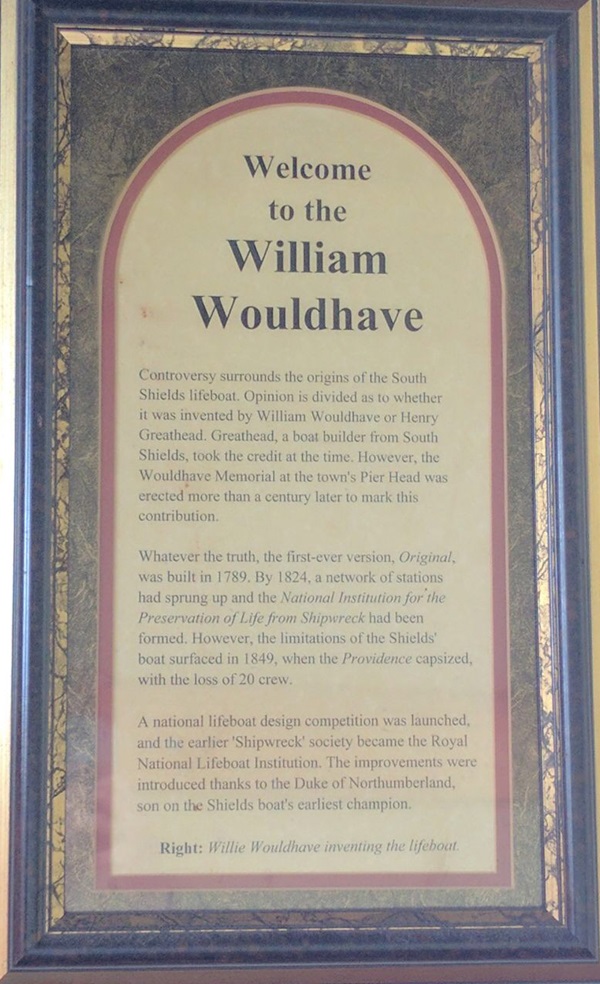
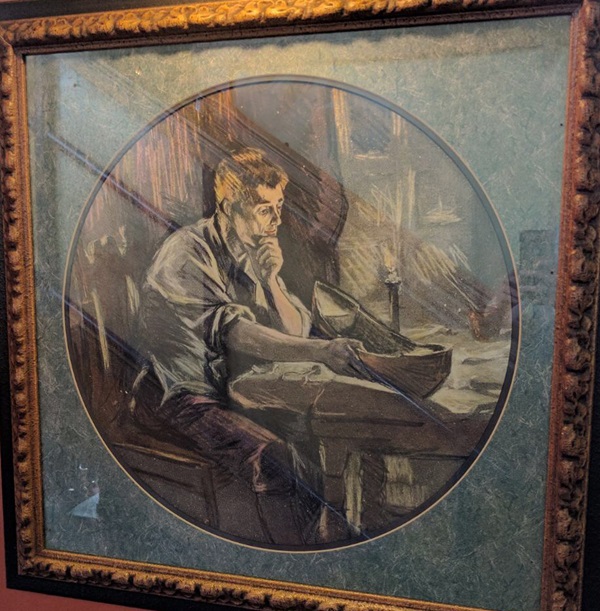
The text reads: Controversy surrounds the origins of the South Shields lifeboat. Opinion is divided as to whether it was invented by William Wouldhave or Henry Greathead. Greathead, a boat builder from South Shields, took the credit at the time. However, the Wouldhave Memorial at the town’s Pier Head was erected more than a century later to mark this contribution.
Whatever the truth, the first-ever version, Original, was built in 1798. By 1824, a network of stations had sprung up and the National Institution for the Preservation of Life from Shipwreck had been formed. However, the limitations of the Shields’ boat surfaced in 1849, when the Providence capsized, with the loss of 20 crew members.
A national lifeboat design competition was launched, and the earlier Shipwreck society became the Royal National Lifeboat Institution. The improvements were introduced thanks to the Duke of Northumberland, son on the Shields boat’s earliest champion.
Right: Willie Wouldhave inventing the lifeboat.
Text about earning a living in South Shields.
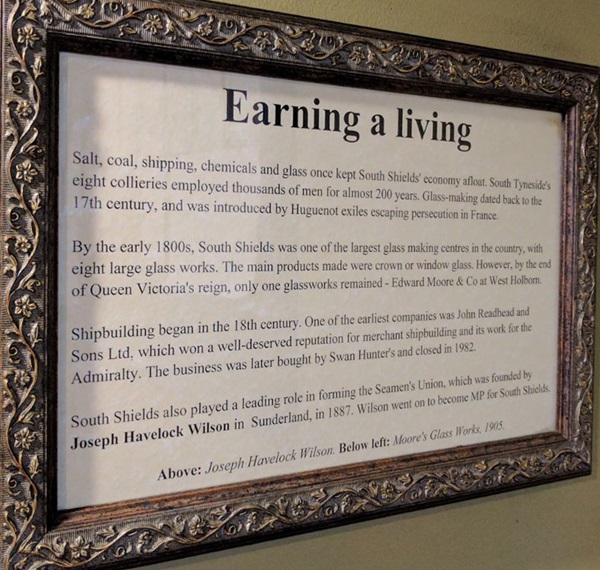
The text reads: Salt, coal, shipping, chemicals and glass once kept South Shields’ economy afloat. South Tyneside’s eight collieries employed thousands of men for almost 200 years. Glass-making dated back to the 17th century, and was introduced by Huguenot exiles escaping persecution in France.
By the early 1800s, South Shields was one of the largest glass making centres in the county, with eight large glass works. The main products made were crown or window glass. However, by the end of Queen Victoria’s reign, only one glassworks remained – Edward Moore & Co at West Holborn.
Shipbuilding began in the 18th century. One of the earliest companies was John Readland and Sons Ltd, which won a well-deserved reputation for merchant shipbuilding and its work for the Admiralty. The business was later bought by Swan Hunter’s and closed in 1982.
South Shields also played a leading role in forming the Seamen’s Union, which was founded by Joseph Havelock Wilson in Sunderland, in 1887. Wilson went on to become MP for South Shields.
A large wall mural, with reference to the pub’s name.
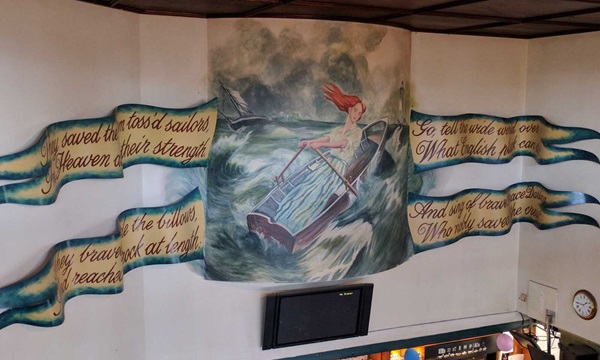
External photograph of the building – main entrance.
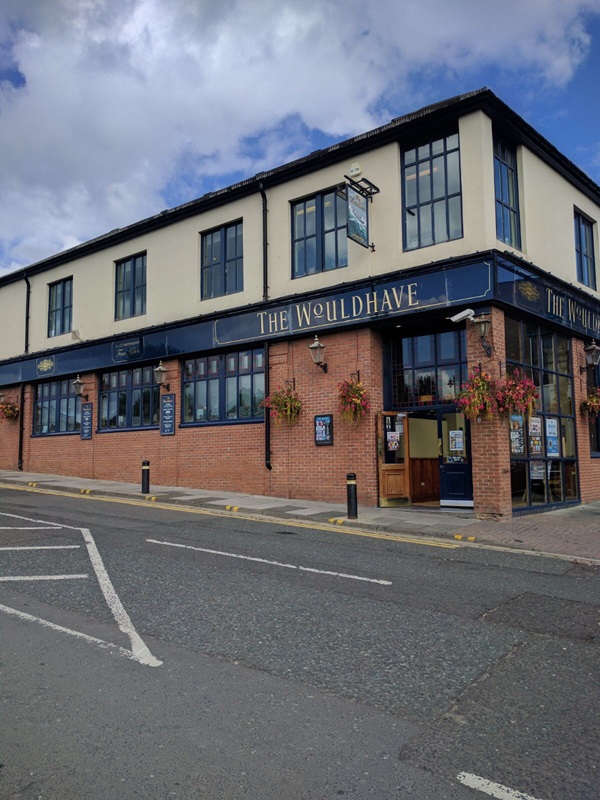
If you have information on the history of this pub, then we’d like you to share it with us. Please e-mail all information to: pubhistories@jdwetherspoon.co.uk